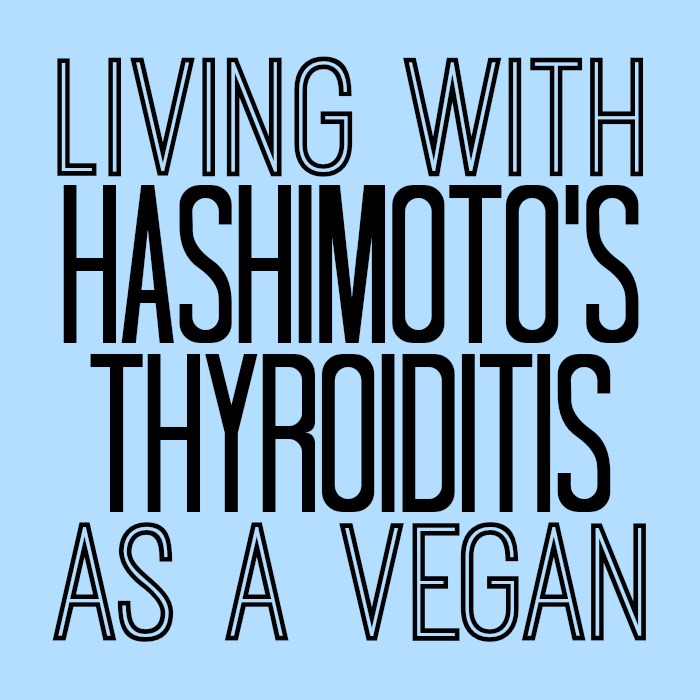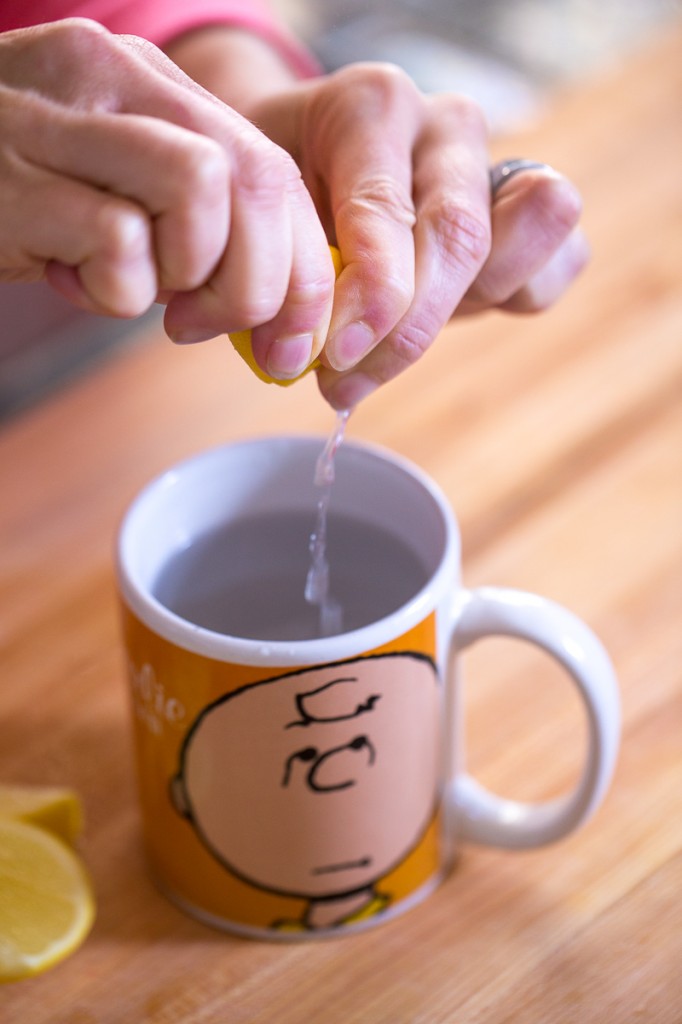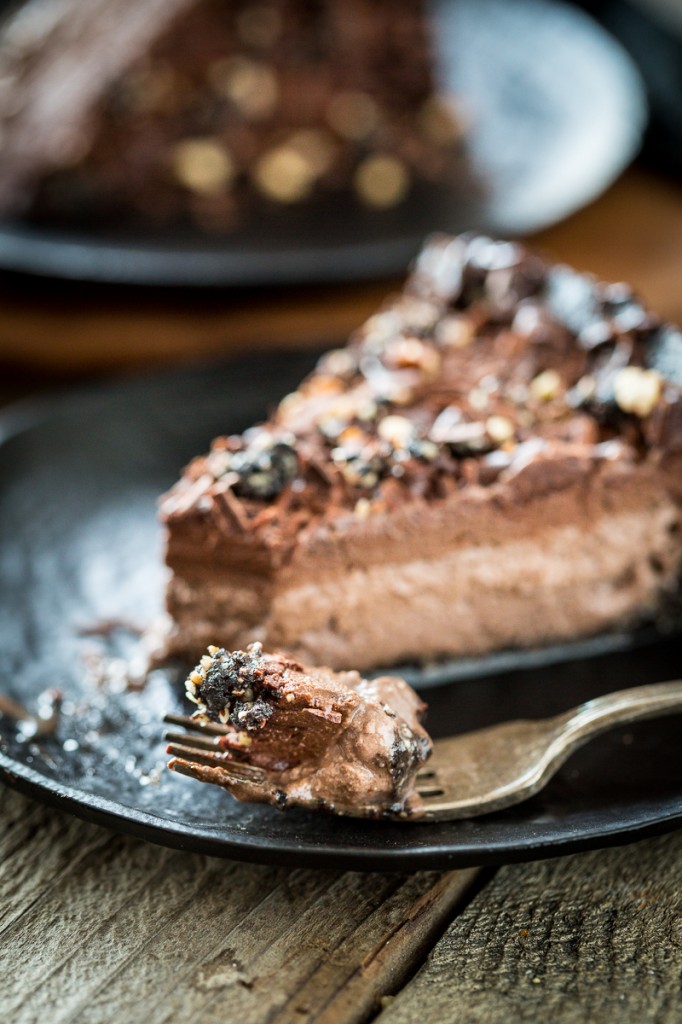
Disclaimer: I am not a doctor. I don't even play one on TV. Below you will read about my experience with Hashimoto's Thyroiditis as a vegan, advice my doctors gave to me, and an idea of how I manage. Do not take any of this as medical advice. It is not meant as such. Please read and if you're inclined, share your story too in the comments section. You can also join our Facebook Group for Vegans with Hashimoto's Thyroiditis.
MY HASHIMOTO'S JOURNEY
Last year, up until around September, I was not feeling so hot. I had the following symptoms:
- extreme fatigue
- foggy brain (inability to remember what I was doing 2 minutes beforehand and general lack of sharpness)
- inability to concentrate
- easily overwhelmed
- social anxiety and uncomfortableness
- depression
- inability to get warm after being cold (my teeth would chatter for hours and nothing I did could get me warm again)
- weight gain despite all my efforts to exercise and eat healthfully
- overall achyness and walking around holding my lower back like and old lady
- uncomfortable non-stop bloating
- constipation (sorry if that’s TMI)
- swollen, puffy face (I couldn’t speak on my phone without my cheek hanging up on people)
- greyish, yellow bags under my eyes
- dry and brittle hair
I’d had all of these symptoms in the past at various points in my life, but they’d always gone away after a month or so. This time, it started around January, shortly after my grandmother passed and I thought I was just depressed, but it never let up. It seemed to keep getting worse. I went to the doctor and blood tests revealed that I had vitamin D deficiency and that my blood sugar was also a little on the low side. My doctor told me to begin taking a vitamin D supplement and referred me to an endocrinologist to discuss my blood sugar.
I met with the endocrinologist and she noted that my TSH (a hormone sent from the pituitary gland to the thyroid to stimluate thryoid hormones) level was a little on the high side but still within normal range. She also discovered that one side of my thyroid was larger than the other. She told me to take the vitamin D for six weeks and then return after having another blood test and a thyroid ultrasound. During those 6 weeks, I gained 10 pounds and though I had a bit more energy, not much else was improving. My endocrinologist called me in the same day she got the results. My TSH levels had skyrocketed by 20 times the original level. Also, according to the ultrasounds, I had several lumps on my thyroid but none were large enough yet to be concerned. At this point, she said I had hypothyroidism and prescribed thyroid hormones for me to try for another 6 weeks.
It took a couple of weeks before the medication began to work but once they did I began to lose a little weight and I actually began to feel like myself again. I didn’t realize how uncomfortable and socially-anxious I’d become, and how being moody and overwhelmed had became “normal” to me. My focus improved and I overall felt more on top of things. I wasn’t feeling 100% better but it was a drastic improvement. There was a down-side, though. I went from sleeping like it was my job to being unable to fall asleep at night. My hair had been dry and brittle before but now it was falling out by the handful. I eventually ended up cutting my hair to my shoulders because it became really hard (and depressing) to manage (not to mention, I had become very self-conscious about my hair). My back began hurting daily and headaches became a nearly daily occurrence.
Luckily, when I first got the diagnosis, I contacted a friend of mine who I knew had hypothyroidism. She told me I absolutely had to go see her doctor, that she was the absolute best. This doctor’s office was 1 1/2 hours away from my house, but I decided I owed it to myself to check her out. I made an appointment for right after my 6-week check-up with my current endocrinologist. My TSH levels had dropped but not enough. My first doctor told me that I needed to increase my dosage. When I talked to her about my other symptoms, she either told me they were unrelated or in the case of the headaches, that I should take two Advil a day for two weeks, then 1 a day for a week, then one every other day for another week. Obviously, this didn’t jive with me.
The new doctor, after going over all of my symptoms, showed me my blood test results and we went over each item together. The main number she was concerned with was my Thyroid Perioxidase Autoantibodies. In a normal person, the level would be less than .9. Mine was 425. This, she explained, indicated that I have an autoimmune disease called Hashimoto’s Thyroiditis (an autoimmune disease that causes your body to attack your thyroid) and apparently, I was in the middle of a pretty intense flare-up. The other doctor didn’t even test for this. As we went over my test, she told me she wasn’t going to increase my dosage yet (but I still need to be on them), but instead she showed me which vitamins, minerals, and supplements I should take to battle the symptoms I was dealing with and help to heal my thyroid. What’s even better is that she told me what to look for so I could get vegan versions of them and instead of questioning my vegan diet like most doctors do, she applauded it. Since I already avoid sugar most of the time, she told me there was only one change to my diet that I should definitely make: I needed to give up gluten.
From what I have gathered, in laymen's terms, the molecular structure of gluten matches that of the thyroid so when your body senses gluten in your blood stream, it releases more autoantibodies to attack your thyroid. By not injesting gluten, you decrease the amount of thyroid-attacking autoantibodies.
I have now been gluten-free for about 6 months and I haven't even "cheated" yet as I originally mentioned that I might (update 7/21/15: I've "cheated" a few times and each time, I've noticed the fatigue and fogginess return for a day or two after). It's been pretty easy for the most part. I've also been continuing to take all of the vitamins and supplements the new doctor recommended but I haven't been back to see her. Unfortunately, she wasn't covered by my insurance and that little visit was very costly, not to mention that she was located in Ventura and the drive there and back is just not practical. I've been looking for a local naturopath that I can afford to visit (out of my own pocket, since my insurance doesn't include naturopaths) but no luck so far.
My other endocrinologist has needed to increase my medication because my TSH levels were still out of whack and I have to admit, the increase has really helped. I do believe that you can alter your diet as much as you want, but the fact of the matter is that there is already damage done to your thyroid and the only way to get your body to work properly with a damaged thyroid is to provide it a synthetic thyroid hormone. Diet will help prevent the Hashimoto's from progressing and getting worse but it won't fix the damage that has already been caused. This increase, in combination with the rest of my regime (which I'll go over below), seems to be working well. My back aches have mostly subsided and I haven't had a headache in a couple months. I've had a couple flare-ups that've lasted about a week each but they're nowhere near as bad as the way I was feeling a year ago. From what I understand, this is normal.
Update 4/20/16:
Last fall, my blood tests showed that I’d tipped over, just slightly, into HYPERthyroid territory so my endocrinologist decreased my thyroid hormone medication. I was just beginning to show signs of depression but my endocrinologist was positive that it was separate from thyroid issues because of the blood test results. The decrease in medication caused an increase in other HYPOthyroid symptoms like weight gain, fatigue, brain fog, hair loss, etc. But when I went back in February, my blood tests showed that I was still HYPER and even though I was having these symptoms, my doctor insisted on lowering my medication again. I felt that she wasn’t listening to me. I went to my regular doctor to request a new endocrinologist referral and my doctor agreed that we needed to get me back to feeling better, even if that meant my blood tests showed that I was HYPER. That may be where I feel normal.
So I went to my new endocrinologist. He agreed that it was important to get me back to where I felt normal. So he increased my medication back to where it was the last time I felt good. But there was something else we needed to address. They’d found nodules on my thyroid a couple years ago and during my yearly ultrasound to monitor said nodules, one of them had grown and developed “morphologically suspicious features.” The ultrasound results actually said “Consider Fine Needle Aspiration.” Which, for those of you who don’t know, is a biopsy. My first endocrinologist ignored this and suggested that we look at the nodules again in six months or so. My new endocrinologist didn’t want to mess around with it and ordered a biopsy, which I did the following week.
I was sure that if it was anything serious, they would call me in and we’d talk about it in his office, just like they do in the movies. When the doctor called, I was positive that he was just calling to say that it was normal. When he told me that I had cancer, I struggled to hear everything he said afterwards but there was a high-pitched tone in my ears. I began to sweat. I was at work and I carried the phone outside to the balcony so I could get some fresh air and escape the sound in my head. I asked him to repeat himself. Definitely cancer. Surgery. Partial thyroidectomy. I shouldn’t worry. It’s common. Need to make an appointment with the surgeon.
So I made an appointment with the surgeon. The week leading up to the appointment was confusing. I’m only 35. I’m vegan. I take care of myself. I’m supposed to be healthy. How do I have cancer in my body? I was in the thick of my stint with bronchitis and I couldn’t help but wonder if part of the coughing was due to the cancer. Maybe I’m so tired because of the cancer? Is it growing and spreading right now? Is it possible that I have cancer elsewhere in my body just waiting to be discovered?
My appointment with the surgeon was helpful. Papillary Thyroid Carcinoma. It’s the most easily treatable, most favorable form of thyroid cancer. She wants to remove the entire thyroid to reduce the risk of having to go through this again in the future. They did another ultrasound and there are some lymph nodes near the tumor that are enlarged. It’s possible that the cancer spread to the lymph nodes so when they are removing the thyroid, if the lymph nodes look cancerous, they’ll take those as well. But I’m young. The tumor is small. They don’t think there’s any reason for me to need any further treatment following the surgery. And they don’t think it will affect my life expectancy at all. I already take thyroid hormones so my body is already used to them. There won’t be an adjustment period. I should be fine after one week of recovery. Easy peasy.
Update 10/12/16:
I had my surgery back in May. While they were removing the thyroid, they removed on lymph node, the largest, and tested it. I turned out to be cancerous so they removed 20 more lymph nodes just to be safe. My recovery went well and after a few days my surgeon called to tell me that of those 20 lymph nodes, about half were cancerous so she recommended Radioactive Iodine Therapy. As I'd discussed with her prior to the surgery, my husband and I had a vacation planned so we agreed that I would discuss the therapy with my endocrinologist when I returned in three weeks.
When I returned, I went in for blood tests and an ultrasound. My endocrinologist called me a day or two later to tell me that my blood tests looked fantastic and that my ultrasound was clear. I didn't need to have the therapy! I was so happy to hear the news that I didn't bother to question whether it was correct or confirm with my surgeon that this was the case. In September, I returned to my surgeon to have her look at a small bump in my incision wound. It turned out to be a stitch that had not fully dissolved. While I was there, I spoke with her about my endocrinologist's decision to not do the RAI and she was pretty unhappy. She said that with the number of cancerous lymph nodes she removed, I should absolutely do the therapy to reduce any chances of the cancer returning via a lymph node. I spoke with my general practitioner who agreed with my surgeon and sent me to another endocrinologist for a second opinion.
My new endocrinologist explained that had she been my doctor at the time of surgery, she absolutely would've had me do the RAI. However, at this point in the game, with my blood tests being so good, she could not advise that I do the therapy. She said that I have a 15% chance of recurrence and should that happen, they would do the surgery again and then definitely do the RAI right away. So that's where I'm at.
Another interesting thing happened post-surgery. Before the surgery, I was taking 112mcg of synthroid and was doing great. After the surgery, they increased my dosage to 125mcg. I continued to do well until late July when I started getting fatigued. Over the next month or so, I continued to get more and more fatigued and foggy and I gained over 5 pounds. I thought that for sure I needed to increase my dosage again, however when I had my blood tests in September, my TSH was at .04 and my antiboides were at .9. My doctor felt that the reason for my fatigue was because I was too hyper or amped up from being HYPERthyroid, that I wore myself out and got fatigued. I gained weight because my increased energy increased my appetite causing me to eat more but since I was tired, I was exercising less. I was VERY skeptical of this explanation but I let him lower my dosage back to 112mcg. The first week was rough. I was either debilitatingly fatigued or plagued with heart-racing anxiety. It eventually balanced out and now I'm feeling great. I'm not struggling to get out of bed, my energy levels are good, I'm focused, and now, after almost a month, the weight is slowly starting to come off. I'd never heard of this before, but I thought I would share that tidbit in case others have the same issue.
MY VEGAN HASHIMOTO'S REGIME
medication
There are 3 types of synthetic thyroid hormones. One is levothyroxine (generic) or Synthroid (non-generic) and provides your T4 hormone. I recommend Synthroid over the generic brand because I've heard the generic isn't as potent. T4 converts to T3 providing all the thryoid homrones you need. In some cases, this conversion does not happen so while you may be taking Synthroid , you'll still feel terrible. In this case, you'll need to take a T3 hormone, like Cytomel. There is a medication that contains both hormones, called Armour, however it's made from pigs' thyroid hormones so it is absolutely not vegan. Synthroid contains cornstarch and lactose as fillers so it is not vegan either. Cytomel, from what I can find, is vegan but it contains gluten. I would choose Cytomel over Synthroid if I could but it really comes down to the doctor's prescription and as of now, I don't need T3 supplementation. Until there is a better, non vegan option out there, this is my choice.
Thyroid hormones are most effective when taken on an empty stomach and at least 30-60 minutes before taking any other medications or vitamins or even eating as any of these things could interfere with absorption. For this reason, I set my alarm 1 hour before I need to get up and take my Synthroid and go back to sleep.
vitamins and supplements
An hour later, when I wake up, I take my vitamin D3 (2500 IU) and vitamin B12 (1000 mcg) (update 7/21/15: I've recently had to stop my vitamin B12 supplementation and then add it back in at a lower dosage because a recent blood test revealed that my B12 levels were too high! Imagine that! A vegan with TOO MUCH B12!). I did not find it hard to find vegan, cruelty-free versions of these vitamins but with the B12, it's good to find one that also contains folic acid and that can be taken sublingually (dissolved under the tongue) as it's more readily absorbed this way. It's best to take these in the morning because they will give you more energy throughout the day. The B12 also aids with the lack of concentration and makes your brain a little sharper. It's best to have your doctor do a blood test to find out if you are defficient in either of these vitamins before starting to take them, however, for people with Hashimoto's, you want to be in the higher end of the normal range (for vitamin D, the normal range is 30-100 ng/mL, so you want to be over 60 ng/mL, and for vitamin B12, the normal range is 200-1100 pg/mL, so you want to be in the 900-1100 pg/mL range) to help with symptoms.
Midday, I take another Vitamin D3 and an Omega 3 Fatty Acid supplement. Omega 3 Fatty acids can help improve your skin, ease joint pain, improve brain function, and help with depression. While you can certainly get omega 3 fatty acids from foods such as flax seeds, walnuts, and various plant-based oils, you will only be getting one type of fatty acid: ALA. There are 2 other types of Omega 3 fatty acids that you need, however: EPA and DHA. Most Omega 3 Fatty Acid supplements that provide both EPA and DHA are derived from fish oil but there are vegan ones that are algae-derived, providing the same fatty acids. You want to find one that is roughly 300mg EPA/200mg DHA. I couldn't find a vegan version with these stats but the one I use is 320mg DHA/130mg EPA. It's still 500mg and it seems to be working just fine for me. My daily back pain and headaches began to let up once I started supplementing with it.
In the evening, when I get home from work, I take a probiotic and Magnesium Citrate (500mg). Probiotics provide natural bacteria/microorganisms that aid in your digestive track functions. Since I have such a problem with constipation, bloating, and gas, the probiotic has really helped to make digestion a lot more normal for me. Searching for a vegan probiotic can be tough since many are made with bacteria from dairy cultures but there are vegan versions out there (like the one I use).
The magnesium helps with constipation as well but it also helps with my sleep. By taking it 2 to 3 hours before I go to bed, I feel more calm and appropriately tired come bedtime. I fall asleep easily like I used to. If I'm still a little too awake about an hour before bedtime, I also take some melatonin. One note: when choosing your magnesium citrate you do not want to get a calcium/magnesium combo. You want to get the 100% magnesium citrate for maximum benefits.
diet
After my morning vitamins, while I'm getting ready, I drink my warm lemon water. I've talked about this habit before (it's something I started a couple years ago, long before the diagnosis). Drinking a glass of warm water with the juice of half of a lemon has many health benefits but what I love about it is that it gives my digestive system a gentle, healthy jumpstart for the day, it helps make my digestive system more productive (if you know what I mean), and it always gives me a little burst of energy. Over the last year, I've added a few ingredients to make it even healthier: turmeric (anti-inflammatory and aids with digestion), cinnamon (regulates blood sugar and improves brain function), and cayenne pepper (stimulates digestion and metabolism). It's a great way to wake up.

Aside from being vegan, I'm also gluten-free now, as I mentioned. For people with hashimotos, it's best to reduce consumption of or avoid altogether not only gluten but sugar (I use sweeteners like coconut sugar, maple syrup, stevia, xylitol, and occasionally agave syrup), processed foods, alcohol, and hydrogenated oils. I don't want to vilify any of these foods because heavens knows that sometimes I'll have some chips or a glass of wine. Just know that it's best to keep those foods in moderation. A whole-foods, plant-based diet is best for you and this is not only what I've found with my research, but was also encouraged by my doctor.

There are many sources that suggest removing "goitrogenic" food from your diet. Goitrogenic foods are foods that interfere with your thyroid's iodine uptake and supposedly cause goiter. Some of these foods include broccoli, cauliflower, kale, brussels sprouts, cabbage, strawberries, peaches, soy, millet, and a number of other foods (as well as various medications and chemicals). You would have to eat an incredibly huge amount of these goitrogens to cause goiter. What does happen with people with Hashimoto's Thyroiditis is that the thyroid can become swollen which is normal and completely unrelated to goiter, which is a build-up of tissue. These two things are often confused but not related. I've learned this from a great deal of research (Dr. K explains it well here) and both doctors I've been to have told me not to worry about it. So I don't.
Soy is another concern amongst not only Hashimoto's patients but all people with autoimmune diseases. My doctor told me not to be concerned with it now but to wait for my follow-up blood tests to check my auto-antibody levels. Since mine only improved, I still don't need to be concerned with it for now. Some people may be different so it's best to ask your doctor about whether or not you should try eliminating soy. For everyone else, eating soy in moderation is a healthy part of a plant-based diet (Read: Don't go hating on soy).
Most days, my breakfast is a green smoothie that uses a teaspoon each of matcha green tea and maca powder. Matcha green tea powder gives an energy boost that lasts throughout the day, without the jitters that regular caffeine does. Maca powder is a hormone balancer and seeing as I have 2 hormone disorders (PCOS and Hashimoto's), all take all the balance I can get. I've not found a lot of conclusive research regarding these- this is just something I've found that works for me.

The rest of the day, my meals are centered around balanced whole-food meals. At the very least, I try to make sure I'm getting a veggie, a grain, a protein (usually beans or soy), and a fat (like avocado, nuts, or seeds). I'm not perfect by any means but this plan seems to be working. I don't snack a lot because I'm really not hungry in between meals anymore which is such a huge improvement from when I used to be hungry all the time and hypoglycemic when I went more than 2 hours without eating.

Caffeine. Aside from my matcha green tea, I'm don't do very much caffeine. On colder days, I might have a cup of tea in the afternoon only because it feels cozy, but sometimes that's decaf. I don't do coffee at all anymore, but if I were in Italy and somebody was offering me an almond milk cappuccino, I wouldn't turn them down. I do eat chocolate. That's a non-negotiable for me. It's my thing. I need to have a little bite or two (or sometimes a whole plateful) everyday.

lifestyle
Most mornings, I exercise. I used to do long, intense workouts, with half an hour of intense cardio and half and hour of strength training. What I had to accept is that I have an autoimmune disease and beating my body up like that was more detrimental than helpful. Now, I have a much easier, less intense routine. Three days per week, I do circuit-training. I do a 5 minute gentle cardio workout (mostly walking on a treadmill uphill) and then I do 3 sets of 6 to 8 exercises. I do each exercise for 30 seconds and then rest for 1 minute and do the circuit again. I only use moderately challenging weights and 2 of the exercises (one in the middle of the circuit and one at the end) are "cardio bursts" such as jumping lunges or squat jumps. Two days a week, I do cardio for 30 minutes. I follow a HIIT (High Intensity Interval Training) model with 2 minutes at a moderate pace (like walking) and then 1 minutes at an "intense" pace, though I wouldn't exactly call it intense. It's more like a slightly faster than normal run. At any rate, I never spend more than 30 to 35 minutes at the gym and I leave feeling energetic and not totally beat.
Another thing that's super important is sleep. As simplistic as that sounds, it's the ultimate way to let your body heal and refresh itself. I try to always get at the very least 6 to 7 hours, though when I can get in a full 8, I feel in tip-top shape the next day. Never underestimate the power of sleep.
THE VEGAN HASHIMOTO'S COMMUNITY
I actually haven't seen much of a community for vegan people who have Hashimoto's so I'm starting one here. I want the comment section of this page to be a forum for all of us to support each other, ask each other questions, and learn from each others' experiences. It should be a given since the name of this blog is "Keepin' It Kind," but please remember to practice kindness and compassion here. All snarky comments will be removed. Thank you so much for stopping by here. Now, let's get this party started!
You can also join our Facebook Group for Vegans with Hashimoto's Thyroiditis to share your experiences, issues, and questions so that we can all help and support each other.
